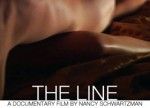Where’s the Line?

On Wednesday, October 20, Colgate’s Wellness Initiative brought Nancy Schwartzman, a documentary filmmaker, to Love Auditorium as a part of sex week. The main focus of her presentation was “the line” between what is considered consensual sexual experience and what is considered rape.
Schwartzman showed us “The Line,” a documentary that she wrote, directed, produced and featured in. In it, she chronicled her life after an unsettling event, which occurred while she was in Israel. Before the event, Nancy had lived a relatively carefree lifestyle filled with partying, drugs and sex.
She contrasted the ideals of body image found in Israel – where women stay very much covered up while out of their houses and remain virgins until they are married – to the ideals of sex within the United States. While in Israel she went to a bar where she met up with a coworker. They went back to his place where he forced her to have sex with him despite her telling him that she did not want to. After this incident, she felt extremely “nervous and vulnerable.” She quit her job and went back to New York.
Unfortunately, many of her friends did not understand what she was going through or even why she was upset. Many of her friends believed that she showed a willingness to have sex with him because she went back to his apartment. Through the documentary, she helped describe how there was a difference in treatment between her and her friend Netanya who was considered a “perfect victim” because she was forcibly raped in the middle of the night by someone whom she did not know at all. Therefore, Netanya had a much easier time finding justice.
Schwartzman saw attorneys about her case as well, the first of whom didn’t think the rape was a big deal, just as her friends thought. The second attorney, however, recognized the importance of consent and how consent to one activity doesn’t necessarily mean consent to another. This discovery is apparent through the course of the video where she confronted her rapist.
Despite discovering it was rape, Schwartzman never pressed charges. Nevertheless, she has traveled around to numerous states and countries to premiere her video and to tell her story. The film initially premiered at an international film festival in Israel and has won much praise and recognition since.
After the viewing of the film, Schwartzman allowed the audience to ask questions during which time she further clarified what it means to give consent, and emphasized that idea that if you are drunk you cannot legally consent to having sex. She also talked about her program called “Hot Safe Spring Break,” which is targeted towards students within fraternities and sororities, and seeks to further define lines of consent and teach students to be mindful of their surroundings. She also gave advice about what to say to a friend who may have been raped. These tidbits included: listening and not judging and making the effort to get information about how to deal with their rape for them.
She gave audience members a chance to think about what their standards are for engaging in sexual intercourse. Sticky labels that read “Where is your line?” were given out and a slideshow of pictures of people from her past presentations holding their stickers was shown. Comments on the stickers ranged from: “Around my finger,” to “Respect, Ask and Listen.”
This presentation helped to clear up many misconceptions about what is considered consent and what is not. It was extremely applicable to college students because of how prevalent drug and alcohol use is, in addition to, and in correlation with, sex.






